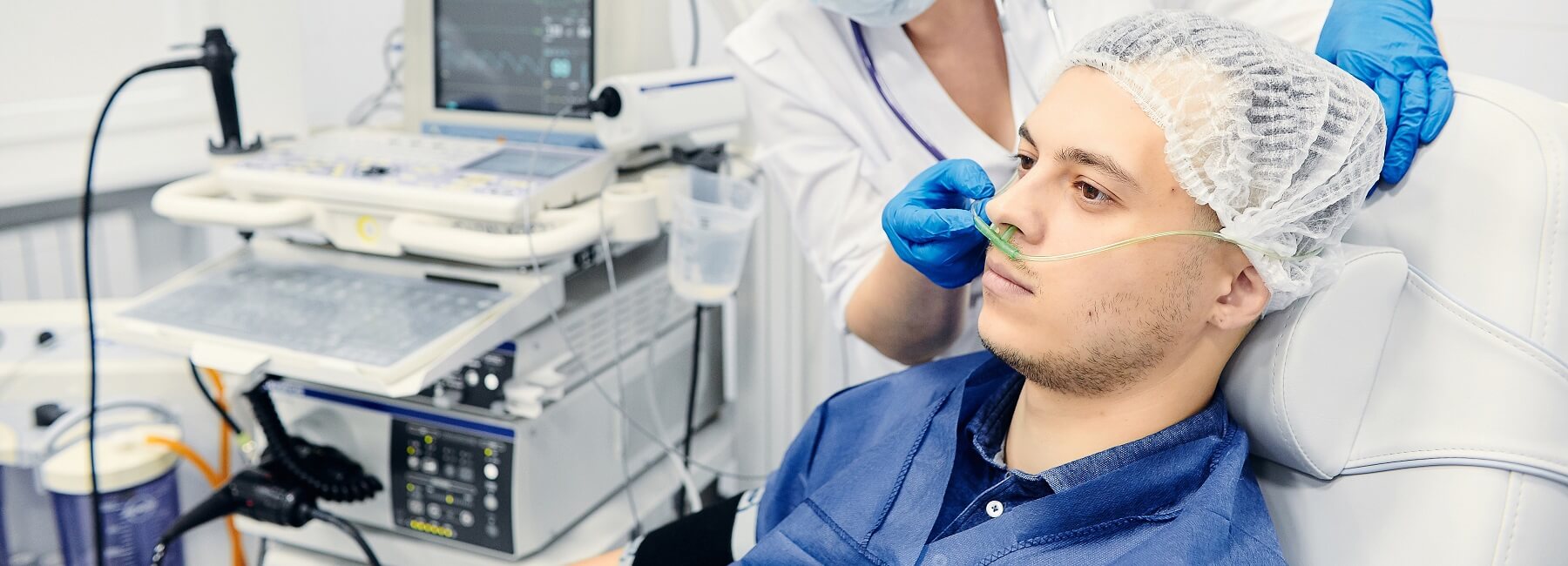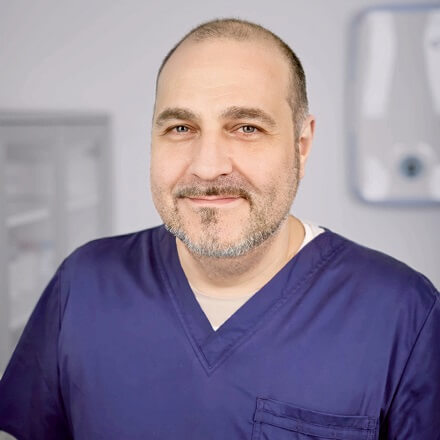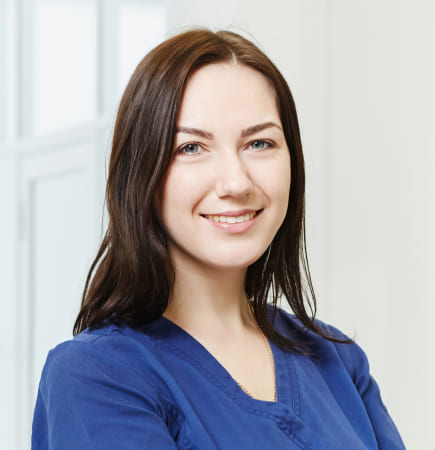-
Advantages of conducting various medical procedures under sedation:
- Painlessness and patient comfort;
- Diagnostic accuracy - when the patient is asleep, the doctor can perform the entire necessary diagnostic complex with greater precision and effectiveness, which enhances the quality of the procedure, automatically reducing the percentage of diagnostic errors;
- Quick recovery of consciousness. Unlike general anesthesia, the patient gently comes out of the state of medicinal sleep. After the person has regained consciousness, it is recommended to stay in the ward for 1-2 hours, after which the patient can return to normal life;
- Control over the depth of sleep – during the sleep, the anesthesiologist monitors the patient's condition (oxygen level in the blood, heart rate, blood pressure) through a cardiometer. The doctor always has a drug at hand that acts as an antidote to sedation.
At the EVIMED Clinic, maximally comfortable conditions are created for preparing for the procedure and recovering after it. All wards are equipped with comfortable beds, technology, and a bathroom.
-
Direct indications for intravenous medicinal sedation include:
- Surgical manipulations;
- Contraindications to general anesthesia;
- This type of sedation is often used in colonoscopy and gastroscopy.
-
List of necessary examinations:
Medicinal sleep is prescribed by a specialist only after a preliminary examination of the patient. Also, for the procedure under sedation, it is necessary to perform a comprehensive laboratory and instrumental examination. Treatment under sedation is carried out on a scheduled basis according to the results of the examination in the absence of contraindications.
- Complete blood count with platelet count and ESR determination (Attention: all blood tests must be conducted strictly on an empty stomach!);
- ECG with interpretation.
Specialists in the Field
In the near future, our employee will contact you
Unfortunately, an error occurred. Please contact our operator by phone:
+7 (351) 220-12-22


